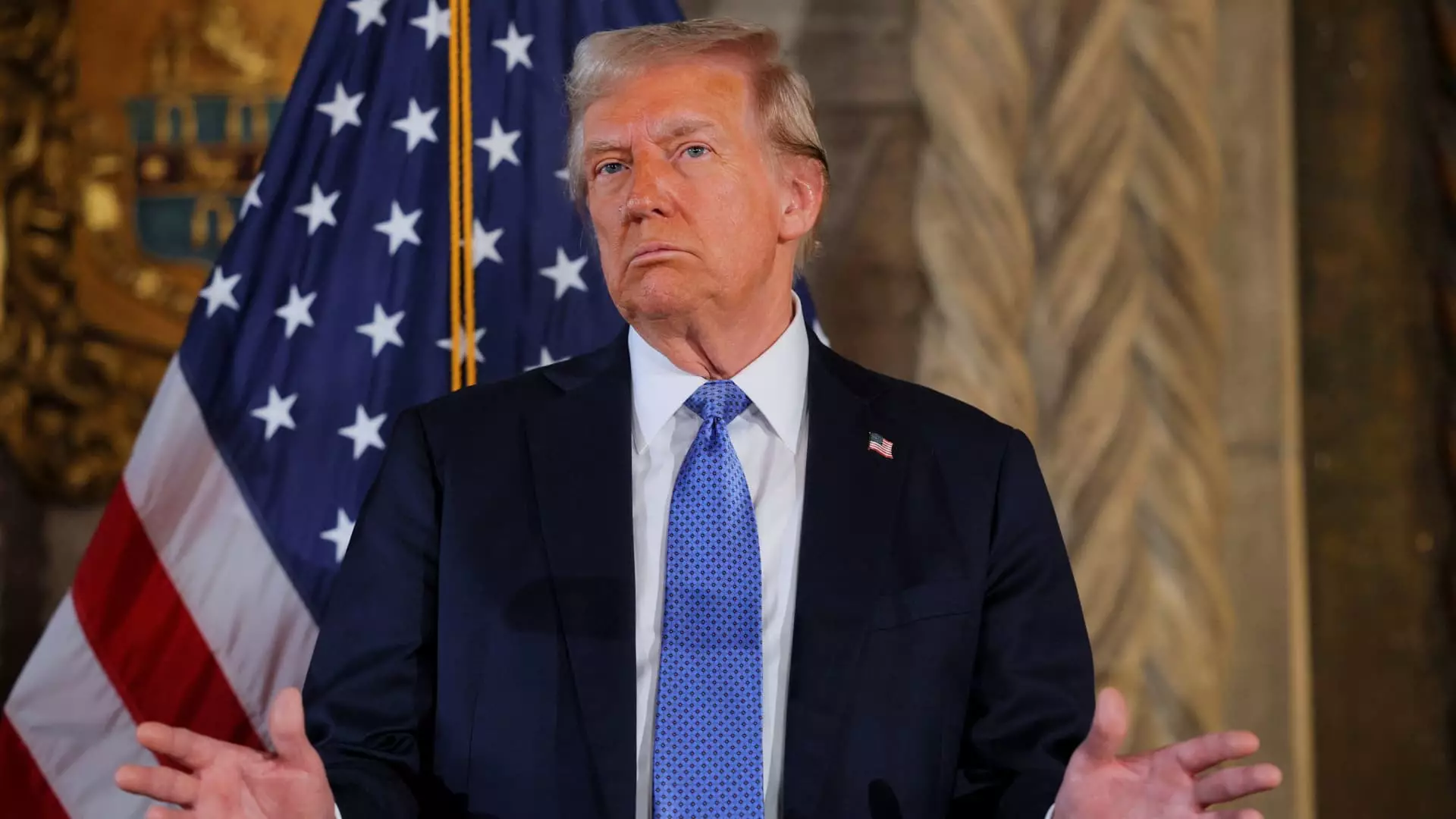When Donald Trump emerged as the President-elect of the United States, his immediate focus turned towards international trade relations, particularly with the European Union (EU). His recent statements signal a strategic yet confrontational approach towards mitigating the U.S. trade deficit with the EU. As he prepares for his presidency, Trump’s insistence that the EU must increase oil and gas purchases to offset this deficit, or face tariffs, illustrates an ongoing pattern of using aggressive rhetoric to influence foreign policy and economic negotiations.
The Trade Deficit Dilemma
Data from 2022 reveals a striking trade deficit of $131.3 billion between the U.S. and the EU, which underscores the complexities of transatlantic economic relations. Trump’s approach appears to be rooted in a simple yet uncompromising premise: that energy purchases can serve as a bargaining chip in negotiations aimed at balancing trade. By leveraging the importance of oil and gas, he positions the U.S. as an essential player in Europe’s energy landscape, particularly following the EU’s recent efforts to diversify its energy sources away from Russia.
The topic of energy is not just an economic consideration but also a geopolitical one. In the wake of shifting alliances and the global quest for energy security, Trump’s demand for increased U.S. energy purchases aligns with Europe’s urgent need to find reliable energy suppliers amidst geopolitical tension. This duality creates a complex environment where economic negotiations overlap with national security considerations.
In response to Trump’s declarations, European diplomats have expressed a mix of surprise and preparation. A senior EU official indicated that while they were not shocked by the rhetoric, they acknowledged the potential for energy as a viable option for increasing purchases from the U.S. This commentary reflects an understanding within the EU of the transactional nature of Trump’s negotiations.
However, the challenges ahead are substantial. The EU, represented by leaders like Chancellor Olaf Scholz and European Council President António Costa, must balance their commitment to transatlantic ties with their own economic interests and the need to respond to U.S. demands. The pragmatic approach suggested by Costa, emphasizing the need for cooperation, is informed by the knowledge that retaliatory measures might be necessary should Trump follow through with his threats of tariffs.
Economic analysts are grappling with the implications of Trump’s trade stance, which includes a history of threatening tariffs on various countries. Such an approach raises inflationary risks domestically, a consideration that did not go unnoticed during his campaign. While these threats may serve as negotiation tactics, the uncertainty around their actual implementation poses risks not just for the EU but for global markets as well.
Former Italian Prime Minister Enrico Letta articulated the concern that the interconnectedness of energy and tariff policies could create misunderstandings during negotiations. He warned against the simplistic mixing of these issues, suggesting that the EU needs to formulate a response strategy that considers the asymmetries in financial relations between the two entities.
The Future of EU-U.S. Energy Relations
Despite the complexities, the EU remains committed to enhancing its energy partnership with the U.S. As demonstrated by European Commission President Ursula von der Leyen’s statements, there’s a clear intention to increase U.S. energy imports to replace the previous reliance on Russian sources. However, this necessitates collaboration and negotiation that extends beyond Trump’s unilateral demands.
The expectation for negotiation following Trump’s presidency, slated to begin in 2025, will likely frame the future of EU-U.S. energy relations. With the global landscape in constant flux and the need for energy security at its forefront, how both entities navigate this relationship could set the tone for future trade accords and economic collaborations.
While Trump’s assertive tactics may reflect a broader strategy toward economic negotiation, they inevitably introduce uncertainty into transatlantic relations. The table is laid for a complex negotiation process where energy purchases could serve as a tool for greater economic balance; however, the outcome will depend on the willingness of both sides to engage in constructive and nuanced discussions.

Leave a Reply